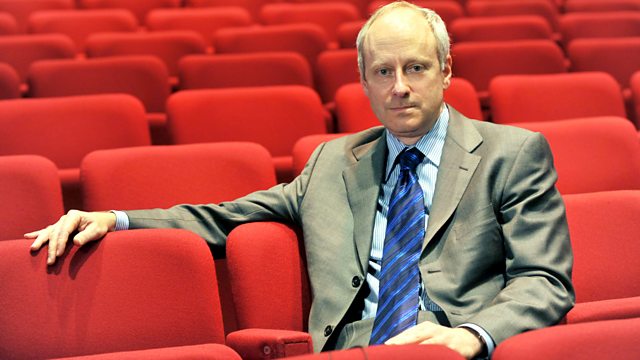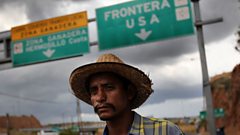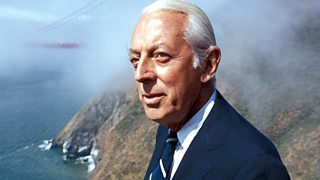Immigration
As the US prepares for presidential elections, Harvard philosopher Michael Sandel asks ordinary Texans in Dallas to consider the moral issues raised by US immigration policy.
The eminent Harvard political philosopher Michael Sandel is Radio 4's "Public Philosopher." Now, as America prepares for its Presidential elections, he and Radio 4 are going on the road in America with a unique mission to lay bare the deeper moral questions bound up in the noisy Romney and Obama campaigns.
In this week's programme, Professor Sandel visits the heartland of America's deep south, hosting a public discussion at the University of Dallas in Texas. He challenges ordinary Texans to consider the moral issues raised when it comes to controlling immigration and deciding who should be entitled to citizenship.
Texas has a long frontier with Mexico and the issue of immigration divides people sharply. A million people in Texas are "undocumented" living without immigration papers. Many Hispanic voters want immigration to be reformed and President Obama recently outlined initiatives aimed at this base. Mitt Romney, too, is reaching out to Hispanic voters but many in the Tea Party movement pull the Republicans in the other direction. They insist that the border must be closed and deportations must be stepped up.
Against this backdrop, our public audience will be asked: "how far should an open society go on accepting outsiders?" Michael Sandel weaves through these issues with the help of philosophers past and present.
Producer: Mukul Devichand.
Last on
More episodes
Previous
You are at the first episode
Next
![]()
Share your thoughts on Michael Sandel's immigration debate on the Radio 4 blog
Clip
-
![]()
The complicated questions around immigration
Duration: 02:29
Broadcasts
- Tue 23 Oct 2012 09:00Βι¶ΉΤΌΕΔ Radio 4
- Tue 23 Oct 2012 21:30Βι¶ΉΤΌΕΔ Radio 4
Featured in...
![]()
America today—Letter from America by Alistair Cooke
The best of Radio 4 programmes providing in-depth coverage and analysis on the USA today.
Podcast
-
![]()
The Public Philosopher
Political philosopher Michael Sandel examines the thinking behind a current controversy.





